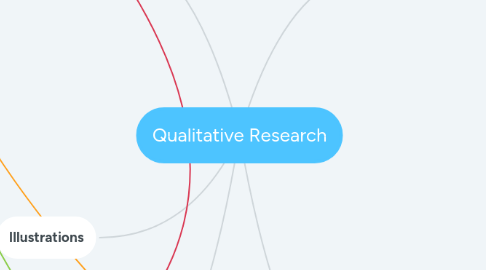
1. The Ethics of Social Research
1.1. Ethics - the moral integrity of the researcher which ensures that the research process and findings are trustworthy and valid.
1.2. Institutional Review Boards (IRBs) - committees that watch over all research proposals and involve working with human participants and animals. Ensures that the studies are ethical and will not cause harm.
1.2.1. Required by federal law
1.2.2. Carry out US government regulations
1.2.3. Determine whether the benefits of a study outweigh its risks
1.2.4. Determine whether consent procedures have been carried out
1.2.5. Determine whether any group of individuals has been unfairly treated or left out of the positive outcomes of a given study
1.3. Consent - Subject's participation in a study is voluntary and based on all pertinent information - Informed consent
1.3.1. Having an understanding of what the study is about
1.3.2. What the risks and benefits of the study are
1.3.3. Understands how the results will be used
1.3.4. Knows that participation is voluntary and can be stopped at any time
1.3.5. Understands that their identity will be protected
1.4. Member Checking - sharing either a brief summary of the findings or sharing the whole findings with the research participants
1.4.1. Gives credibility by establishing the truth of the research study’s findings
1.4.2. Shows that the findings are accurate and honest.
2. Types of Research
2.1. Interpretive
2.1.1. rests on symbolic interaction, subjective experience and small scale interaction
2.1.1.1. Phenomology
2.1.1.1.1. Show human consciousness to understand social reality
2.1.1.2. Dramaturgy
2.1.1.2.1. How people present themselves in daily life
2.1.1.3. Ethnomethodology
2.1.1.3.1. How meaning is negotiated in a social context
2.2. Critical
2.2.1. Values experience of subjects, and their understanding. Often used in power and hegemonic discourse to shape experiences and understanding
2.2.2. Examples are critical race theory, Queer race theory
2.3. Interviewing
2.3.1. Personally asking people questions in one-to-one conversations, or through a survey
2.3.2. Focus Groups, observations, Case study
3. Research Approaches
3.1. Positivism - views social reality as knowable. The practice of objectivity.
3.2. Reflexivity - a process to engage in self-critical action that explore and critically evaluate how personal values, attitudes, and biases may enter into the research process. The awareness and tending to this type of bias serves to make the research project more objective.
3.2.1. How does positionality impact the research process?
3.2.2. How does your position in society impacts the way you observe and perceive others in your daily life?
3.2.3. Is your positionality identified and explained?
3.3. Data - things known or assumed as facts used for reference or analysis
3.4. Sampling Procedure - methods employed to collect data in research projects. Methods can range from nonprobability to probability types of sampling designs.
3.4.1. Snowballing, Convenience, purposeful, self-selection
3.5. Purposive Sample - respondents are chosen to participate in a study based on their particular characteristics as determined by the goals of the research project.
3.5.1. To answer my research question who should be involved in the research project?
4. Illustrations
4.1. Exploratory
4.1.1. Best used when there's little no research done on a specific topic.
4.1.1.1. Conducting interviews, ethnographic research, case studies or focus groups would be great for exploratory research studies.
4.2. Descriptive
4.2.1. Best used to develop and explain people's experiences. Used the describe the details and encounters of various situations.
4.2.1.1. Formulating excellent research questions will be beneficial for descriptive research studies. The goal is get as much information as possible that it creates a sheer picture of the experience.
4.3. Explanatory
4.3.1. Best to used to present data/information based on prior knowledge or self-experience.
4.3.1.1. Using personal experiences should not be minimize or excluded.
5. Paradigms
5.1. A worldview, a whole framework of beliefs, values and methods within which research takes place
5.1.1. Methodology - a coherent and logical scheme based on views, beliefs, and values, that guides the choices researchers make - Derived from the researchers paradigm stance
5.1.1.1. Methods - research tools for conducting research
5.1.2. Ontology - philosophical belief system about the nature of social reality
5.1.3. Epistemology - philosophical belief system about who can be the knowledge builder
